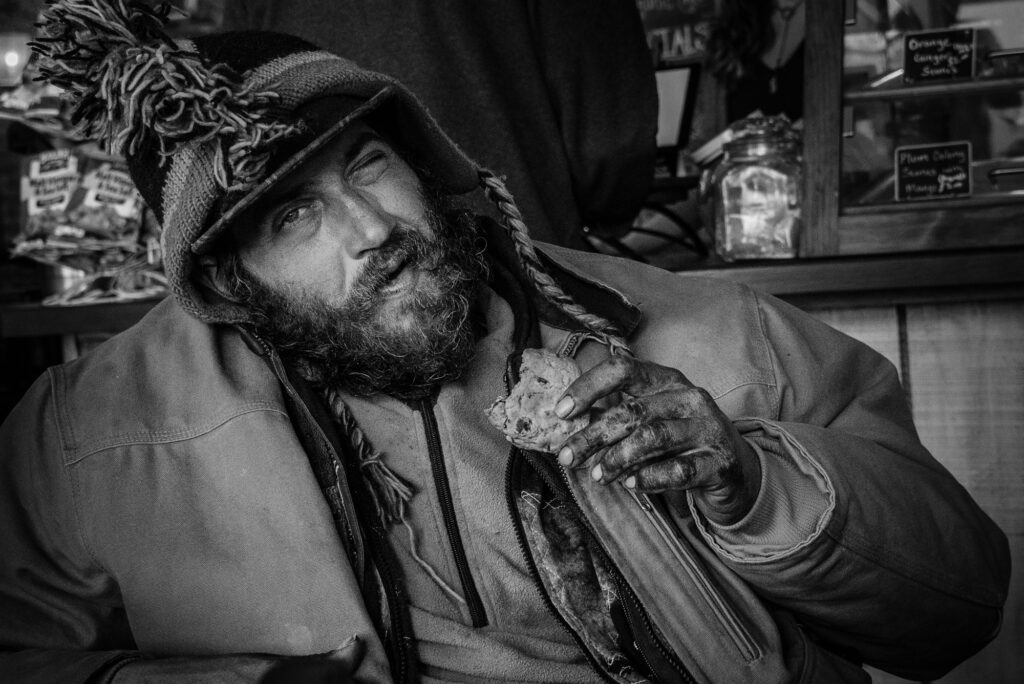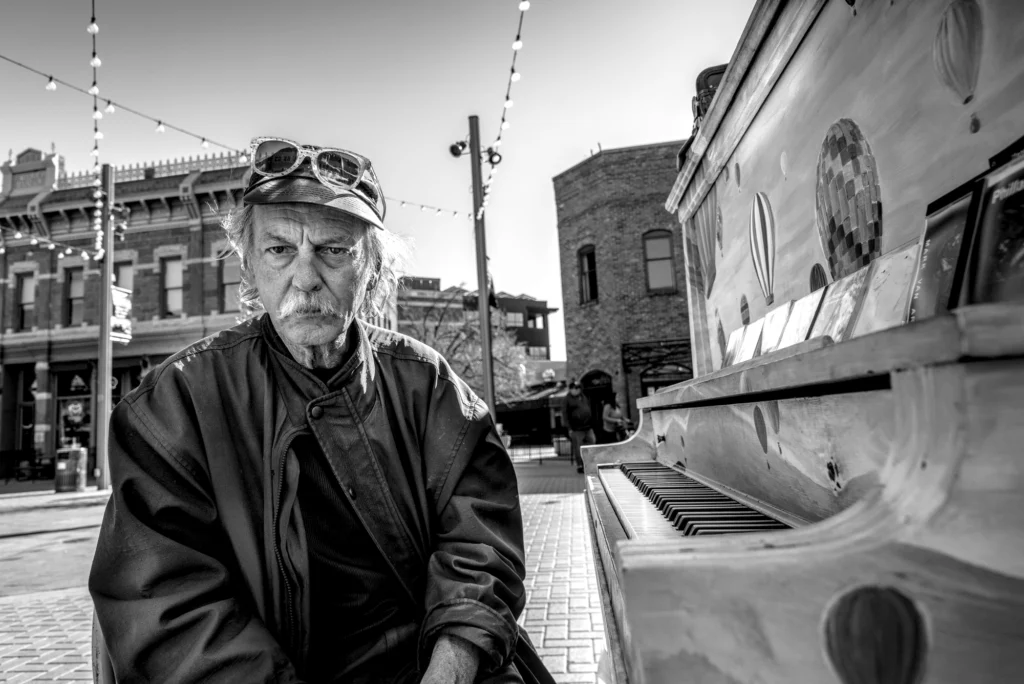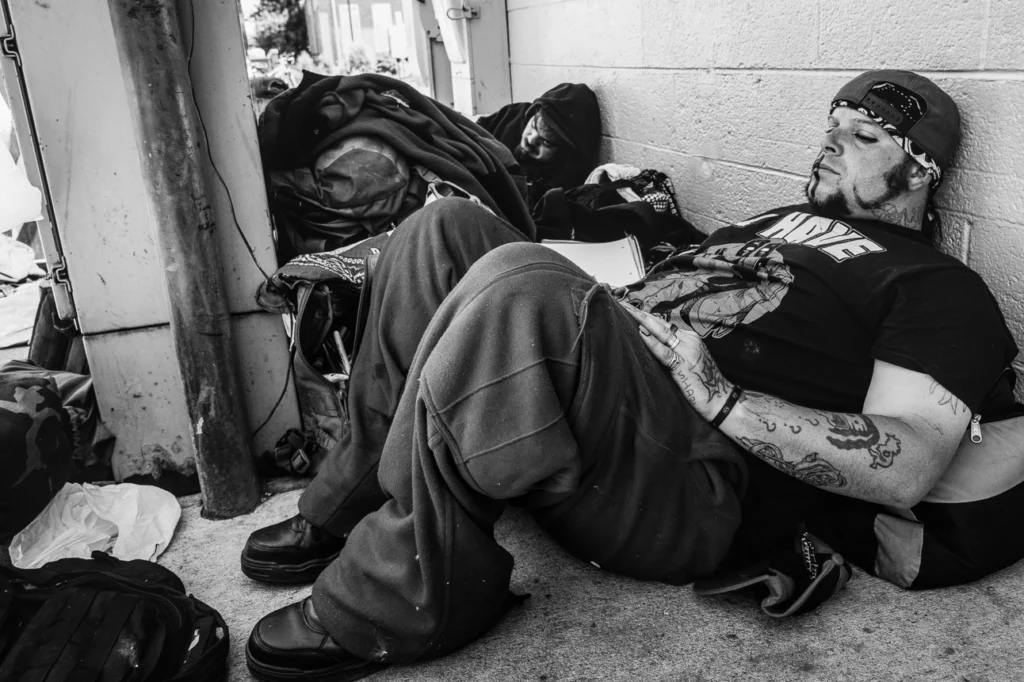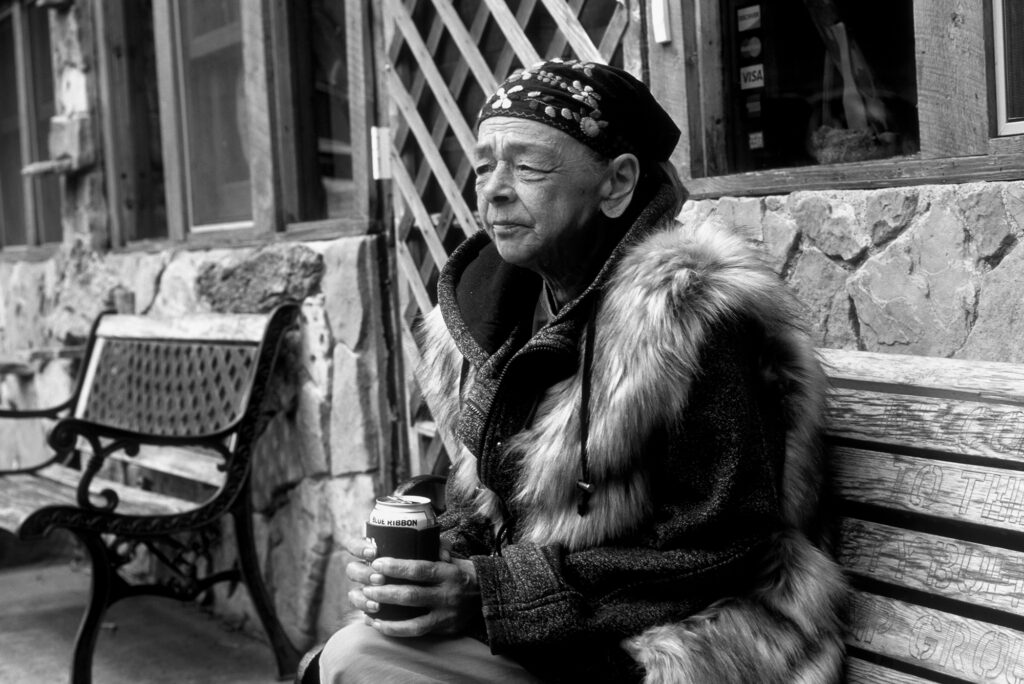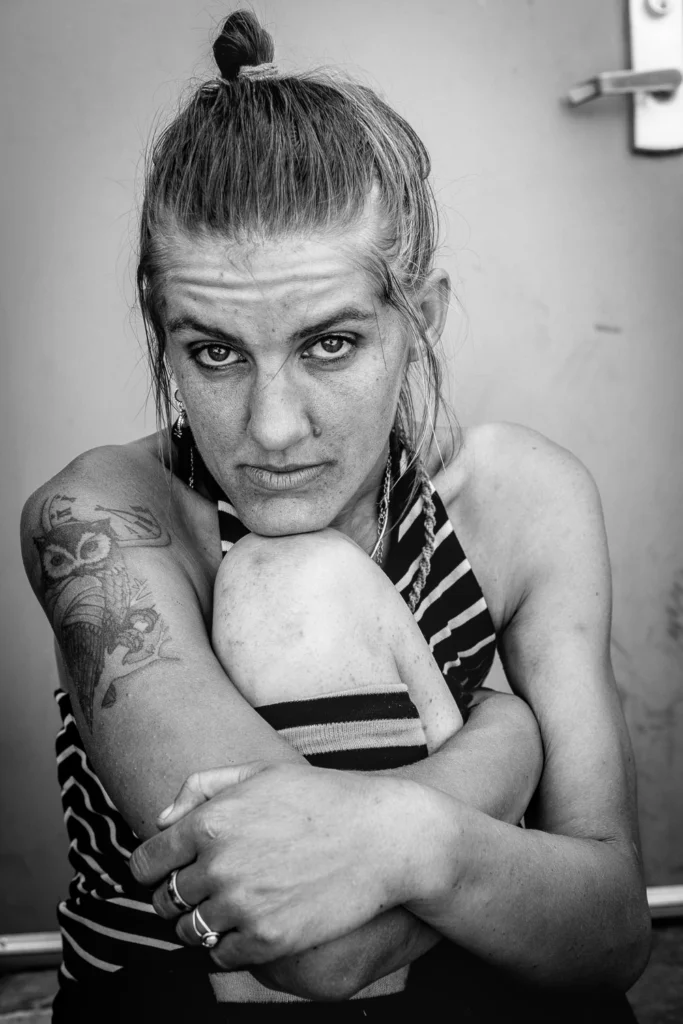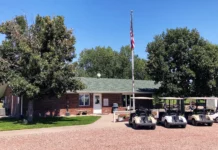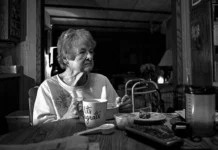| SPECIAL INTEREST |
Story & Photography by: Hawk Buckman
Scottsbluff might feel remote, but that isolation magnifies suffering for those living without shelter, fighting mental illness, addiction, or being socially outcast. “The Mentally Forgotten” follows individuals like Lloyd Mathernsen—people judged, overlooked, yet seeing little help. Their struggles arise from broken systems, trauma, and stigma. This story is about recognizing their humanity, offering kindness, and reminding a community that those on the fringes are still part of us.
Scottsbluff, Nebraska, sits in what feels like the middle of nowhere—a small community surrounded by endless seas of sagebrush and rolling prairie that stretch as far as the eye can see. The horizon is broken only by the occasional farmhouse or a lone grain silo standing guard over the land. It’s a place tucked deep in the Nebraska Panhandle, far from the bustle of big cities.
But just because it’s remote doesn’t mean people don’t find their way here. Highway 26 cuts straight through the heart of Scottsbluff, carrying travelers, drifters, and those with nowhere else to go. For some, it’s just another stop along a long, uncertain journey.
Sadly, for those arriving with nothing—especially the homeless—there’s little real help waiting. Instead, they’re often met with ridicule, suspicious stares, and muttered insults. The common refrain, spat like a judgment, is something along the lines of: “Go get a job, loser.” The reality is harsher than the wind that whips across these open plains: in a town this small, compassion can be in short supply, and for the most vulnerable, survival becomes an uphill battle.
But it doesn’t have to stay that way. Change starts when we decide that every person’s life matters, whether they’re a lifelong resident or just passing through. Even in a place as small as Scottsbluff, kindness, resources, and a willingness to help can be the difference between despair and hope.
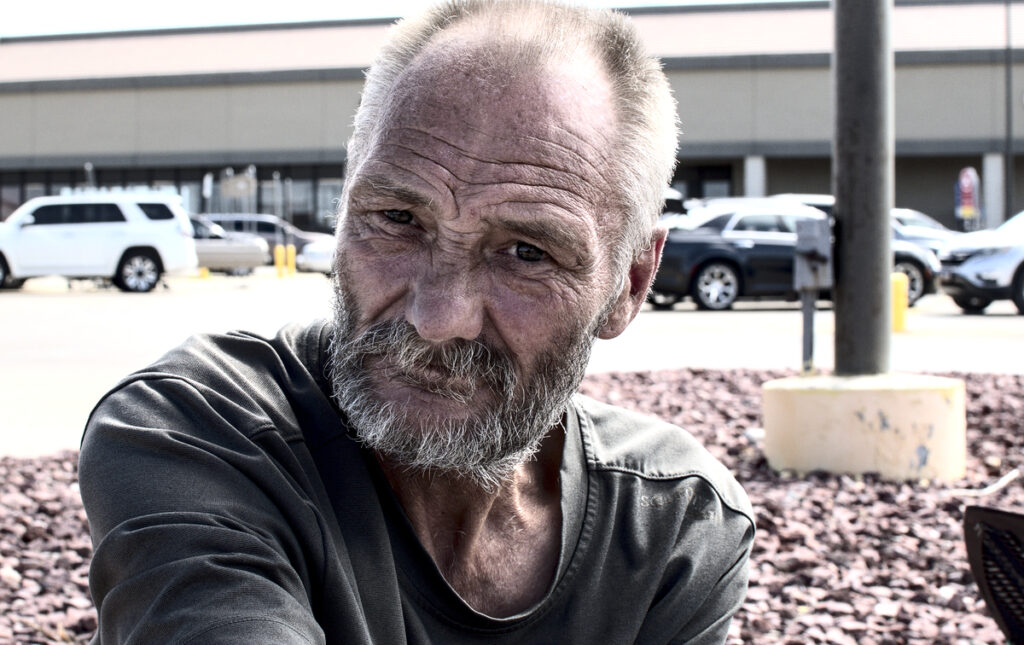
This is Lloyd Mathernsen. He’s homeless, but hanging in there. You’ll find him at the curb outside Safeway in Scottsbluff, NE three days a week. I’m not going to tell you his story — even though I know it, have heard it a hundred times. What I am asking is that you stop and say hello. Just a kind word. That’s all. You don’t need to give him anything but a moment of your humanity. Lloyd isn’t an addict. He isn’t a criminal. He isn’t a loser, though life has stripped a lot from him. What he is, is a human being.
Your words — a greeting, a smile, a brief conversation — can mean the world. When someone falls through the cracks like Lloyd has, the first thing they lose isn’t food or shelter. It’s their place in society. They stop being seen as people. They become invisible. Outcasts. But a simple word, spoken kindly, can be a lifeline. It reminds them they still matter. That they’re still part of us. Sure, a few groceries or a dollar would help. But those aren’t required. Just a few seconds of human connection can start to make someone feel like a person again – give them hope again.
I gave Lloyd the last twenty bucks I had in my pocket — not as charity, but as payment for allowing me to include his image in the Mentally Forgotten photo-essay. I’m still working on this project, even though life keeps getting in the way more often than I’d like to admit. You’re welcome to share this image of Lloyd — copy the text, repost it, spread it around. We’re not chasing notoriety. What we are chasing is this: a spark. A moment where the people of Scottsbluff, and the surrounding area, decide to stand up for the little guy — the underdog, the overlooked, the downtrodden, and the mentally forgotten.
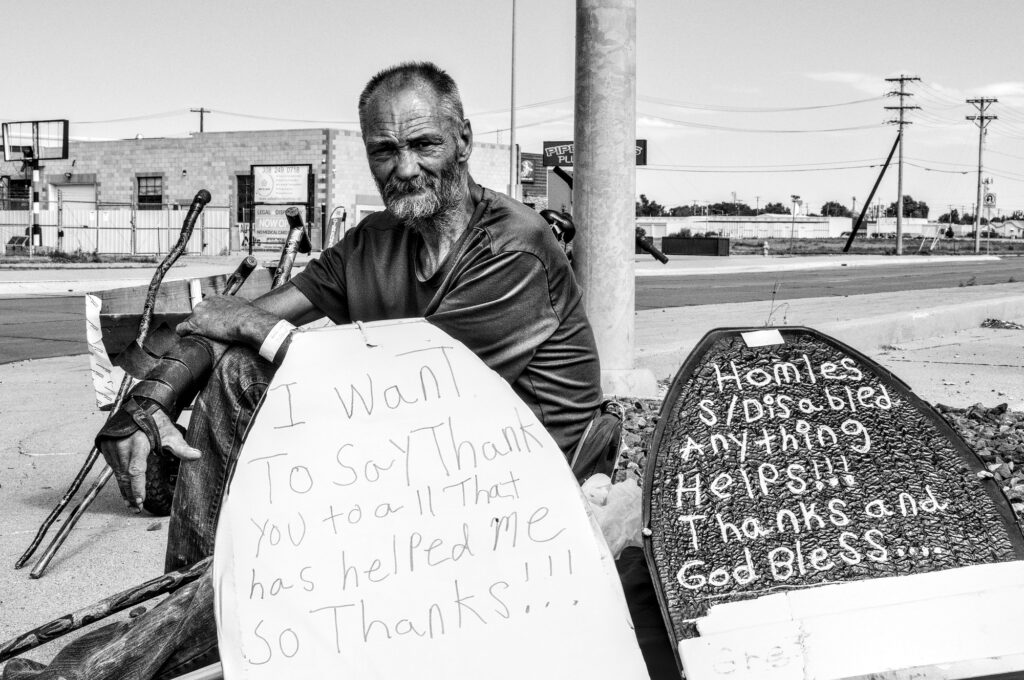
Let’s not walk past them like they’re invisible. Let’s remind them they’re still part of us and in the process remind ourselves that we’re a part of them.
| THE OVERLOOKED STRUGGLE: HOMELESSNESS, MENTAL ILLNESS, AND OUR RESPONSIBILITY
Across the United States, homelessness isn’t just about lacking a roof—it’s often the end result of a chain of broken systems, personal crises, and untreated mental illness. A large share of people living on the streets are runaways escaping abuse, or individuals who fell into addiction. These realities are uncomfortable, but ignoring them doesn’t make them disappear.
Mental illness runs deep in homeless populations, often fueling addiction or making it impossible to hold down a job or maintain stable housing. For many, substance abuse isn’t the beginning of the story—it’s a symptom of deeper pain, trauma, or neglect.
Too often, society chooses judgment over empathy. We point to their choices without asking what led to them. But these are human beings—people who once had dreams, families, and potential. They still need compassion, access to treatment, and a chance to rebuild their lives.
The truth is simple: turning away doesn’t solve the problem. If we believe in the worth of every person, we have a duty to see past the addiction, past the stigma, and offer help where it’s needed most. The cost of ignoring them is far greater than the price of caring.
The Mentally Forgotten project was started by Hawk Buckman, founder and lead photographer of Trails West Magazine and a contributor to many other major publications in the western and Pacific states. This story is the first in a lineup of more serious topics available here on the online magazine.
| MORE INFORMATION
- Dial 2-1-1 — Local referrals for shelter, food, healthcare, and housing help.
- 988 Suicide & Crisis Lifeline — 24/7 confidential support for mental health crises.
- SAMHSA National Helpline — Treatment referral and information for substance use and mental health disorders: 1-800-662-HELP (4357).
- Veterans Crisis Line — Veterans can dial 988 then press 1, or text 838255 for 24/7 support.
- HUD Homelessness Assistance — Federal programs and local housing resources.
- National Alliance to End Homelessness — Research, guides, and links to local help.
- National Runaway Safeline — Support for youth and runaways: 1-800-RUNAWAY (1-800-786-2929).
- National Coalition for the Homeless — Advocacy, information on rights, and emergency resources.
- Homeless Shelter Directory — Nationwide directory of shelters and service organizations.
- National Resource Center on Homelessness & Mental Illness — Resources for the overlap of homelessness and serious mental illness.



